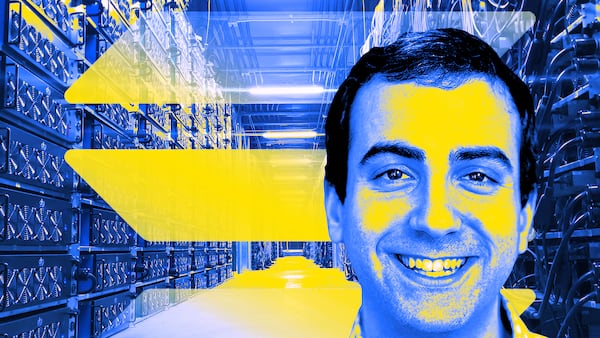- Avraham Eisenberg, the trader who exploited DeFi protocol Mango Markets, was convicted Thursday.
- Jurors rejected Eisenberg's code-is-law defence.
A federal jury convicted crypto trader Avraham Eisenberg of fraud and market manipulation Thursday for his $110 million exploit of Solana-based DeFi protocol Mango Markets, according to Bloomberg.
The verdict could embolden prosecutors who have hesitated to bring charges against traders who take advantage of poorly designed DeFi protocols, according to crypto attorney Gabriel Shapiro.
During closing arguments Wednesday, Eisenberg’s lawyer said the October 2022 heist was a “successful and legal trading strategy” that exploited a flaw in Mango Markets’ design.
But the jurors sided with prosecutors, who argued that Eisenberg’s actions amounted to old-fashioned fraud and market manipulation, even if they took place on a blockchain.
Eisenberg was found guilty of commodities fraud, commodities market manipulation, and wire fraud, Bloomberg reported.
The verdict was a blow to DeFi’s code-is-law ethos, Shapiro said.
“He was definitely guilty of market manipulation of the price of MNGO on [centralised exchanges] — I take no issue there,” Shapiro told DL News, referring to a Mango Markets-issued token.
But Shapiro said it wasn’t clear Eisenberg had actually defrauded Mango’s users.
“I agree more with the defence — you can’t defraud someone if you don’t lie to them or they don’t rely on your lies,” he said.
Eisenberg’s scheme
Eisenberg was charged with market manipulation in December 2022 in the US District for the Southern District of New York after trading with himself to inflate the value of MNGO.
He then used MNGO perpetuals as collateral to borrow crypto worth about $110 million from Mango Markets users with “no intention of repaying them,” according to prosecutors.
Eisenberg infamously claimed on social media that his actions amounted to a “highly profitable trading strategy.” He used Mango Markets as it was designed, he said, “even if the development team did not fully anticipate all the consequences.”
His attorney, Brian Klein of Waymaker LLP, echoed the sentiment during closing arguments Wednesday.
Eisenberg successfully pumped the price of MNGO, Klein conceded. But there was nothing wrong with withdrawing crypto from Mango Markets against the inflated value of MNGO perpetuals — that’s how the protocol was built.
Mango Markets “literally just took an input and used it,” Klein said. “It was automatic.”
Moreover, Mango Markets didn’t specify any terms of service before the exploit, Klein said. The rules were in the code, and everyone used the protocol at their own risk.
Closing arguments
In their closing argument Wednesday, prosecutors tried to cast doubt on the notion that Eisenberg ever thought his actions were legal.
Among other things, Eisenberg fled to Israel the day he was outed by independent journalist Christopher Brunet. And computer records obtained by prosecutors show Eisenberg searching online for information about “criminal and regulatory enforcement of market manipulation” and a “list of Israel extraditions.”
More importantly, prosecutors said, a crime is a crime — even if it happens on a blockchain. Eisenberg illegally manipulated the price of MNGO, and effectively defrauded Mango Markets and its users when he used MNGO’s inflated price to drain the protocol.
“He had to lie — he had to trick the system in order to take out the money,” one of the prosecutors said. “Just because something is possible, that doesn’t make it legal.”
Code-is-law defence
The trial was among the first to put crypto’s code-is-law ethos before a judge and jury.
The concept is sacrosanct among some in the industry, who believe smart contracts — the self-executing software that powers blockchain-based applications — are fairer than the seemingly arbitrary and ad hoc rule-making in most traditional organisations.
Mikko Ohtamaa, CEO of DeFi trading protocol Trading Strategy, took issue with prosecutors’ characterization of the exploit.
Mango Markets was easily exploitable, and its design — including the method it used to determine the price of MNGO — was right there in the protocol’s smart contract.
Its users “could not have participated without agreeing on this,” Ohtamaa said.
In other words, they should have known something like this could happen, and they assumed that risk when they used the protocol.
Four years ago, users of Compound, a lending-and-borrowing protocol on Ethereum, suffered a similar exploit.
“Nobody was sued and everyone took their losses like a man,” Ohtamaa said.
Flawed defendant
But Eisenberg was a flawed defendant: After the exploit, he attempted to blackmail the cooperative that governed the Mango Markets protocol, and he purchased a Ukrainian woman’s FTX account in order to conduct some of the trades associated with the exploit. Prosecutors also claim to have found child pornography on one of his cellphones.
“Avi was blackmailing, using fake KYC and all other sorts of fraud, which make it more difficult to argue for him,” Ohtamaa said, using the acronym for know your customer.
Shapiro said some DeFi teams might “embrace” the outcome of the trial.
“It means they might have more legal remedies if it turns out their code or risk parameters are faulty,” he said.
And he might advise his own clients to create terms of service in light of the verdict.
“I think there are things DeFi teams can do to clarify what a smart contract is and and isn’t, and putting that in the terms of service can make sense,” he said.
“One wonders what the result would’ve been if [Mango Markets] DID have a terms of service and it made very clear there is no counterparty to the transactions.”
Eisenberg faces up to 10 years each for commodities fraud and commodities manipulation, and up to 20 years for wire fraud. He will be sentenced on July 29.
Aleks Gilbert is a DeFi Correspondent with DL News. Got a tip? Email him at aleks@dlnews.com.






